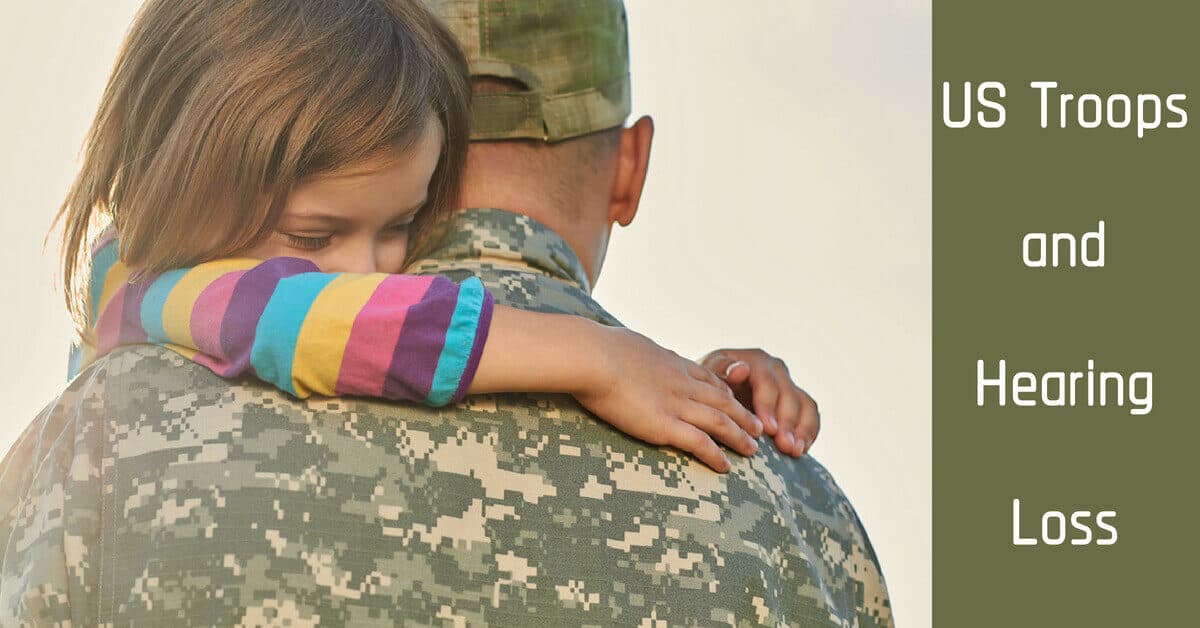
Our troops risk life and limb to serve and protect our country, but that’s not all they’re risking. Military personnel face hearing loss, and many return home with devastating hearing loss, unable to hear all the sounds around them or communicate effectively with friends and loved ones.
U.S. Troops and Hearing Loss
More than 1.1 million veterans receive compensation for hearing loss acquired during their service, and 1.6 million receive compensation for tinnitus, that annoying ringing or buzzing in the ears. On top of that, many veterans who have normal hearing test scores have difficulty following conversations, suffering from a condition known as auditory processing disorder, which is often caused by blast exposure.
Why Don’t Military Personnel Wear Hearing Protection?
Hearing protection should be worn whenever firearms are used, whether in training exercises or on the field. The problem is that many military personnel feel that earplugs muffle too many sounds, and impede their ability to pick up on the subtle sounds happening around them. Being aware of all the sounds in the environment, however soft, could be the difference between life and death, so many choose not to wear hearing protection.
Sergeant Nathan Heltzel from New Jersey, for example, experienced hearing loss during his 11-year service. He has 40% hearing loss in his left ear, 30% hearing loss in his right, and debilitating tinnitus. He started experiencing hearing loss after being exposed to gunfire, both in training and on deployment, as well as loud jet engines. He even left the service because of his hearing loss, and says that he seldom wore hearing protection since it was always more important to hear the radio and other team members, and be alert to the environment.
Protecting Hearing
Hearing loss is easily preventable with consistent and proper use of hearing protection, and this would ensure that our troops won’t experience hearing loss or suffer from tinnitus. Those most at risk of hearing loss are military personnel who work in airplane hangars, are exposed to loud blasts, armed conflict, or any other explosions.
There’s a misconception that wearing ear protection will inhibit communication, or block subtle sounds in the environment, but with ever increasing technological advances, these are worries of the past. Digital hearing protection means that troops won’t have to decide between their lives and their hearing, but can hear everything clearly, and still protect their hearing from loud blasts and gunfire.
The Best Hearing Protection
Traditional earplugs go a long way in protecting hearing. They prevent hazardous sounds from entering the ear and damaging hearing. However, it is true that they can interfere with communication, or make it difficult to be fully aware of the environment. Digital earplugs solve all of that. They block dangerously loud sounds or high frequency sounds, but their filters allow all the soft noises to reach the ear at full strength. They’re just as small as foam earplugs, but will provide convenient hearing protection, without jeopardizing safety.
Military personnel can also wear noise-attenuated helmets. These helmets protect the ears from dangerous noise levels, but increase ease of radio communication with built in receivers and microphones. And to further reduce hearing loss, in 2017 U.S. Marines started using noise suppressors on their weapons. While this doesn’t eliminate all the causes of hearing loss, it can lower the noise of service weapons by 30 decibels, protecting ears from damage.
Defective Hearing Protection
Unfortunately wearing hearing protection isn’t always so straight forward. In a recent case, a defense contractor has been forced to pay $9.1 million for their role in providing defective earplugs to U.S. troops. The Minnesota company sold earplugs to the Department of Defense, allegedly knowing that the earplugs were “too short for proper insertion into users’ ears and that the earplugs could loosen imperceptibly,” making the earplugs completely useless in blocking sounds. Thousands of service members stations in Afghanistan and Iraq from 2003 to 2015 were using the defective earplugs, exposing themselves to dangerous noise levels on a daily basis. This settlement sends a clear message that all safety equipment must be properly made, and that all providers of equipment must do their utmost to protect the safety of our troops.
Treating Hearing Loss
If you’re a veteran and have been struggling to hear, visit us at My Hearing Centers for a hearing assessment. We’ll determine your level of hearing loss, and help you find the perfect device that will treat your tinnitus and fit seamlessly into your lifestyle, allowing you to communicate easily, and enjoy all the sounds you’ve been missing.
